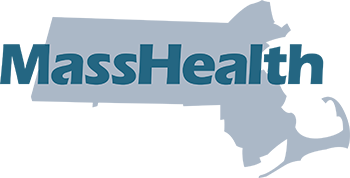Massachusetts Health Insurance Connector Authority
Code of Ethics
The Directors of the Massachusetts Health Insurance Connector Authority (Health Connector) are committed to conducting their official duties with the utmost integrity and ethics. Accordingly, they adopt this code of ethics.
I. Basic Principles
Health Connector Board and staff members:
- Owe a duty of loyalty to the Commonwealth and to the Health Connector.
- Will perform the Health Connector’s business with integrity and openness.
- Will avoid actions that result in, or give the appearance of being, conflicts of interest.
- Will not use their positions improperly to seek personal or financial gain.
II. Requirements of State Ethics Laws
Board and staff members of the Health Connector are subject to the Massachusetts conflict of interest law, Mass. Gen. Laws ch. 268A (Chapter 268A). Board members who are not compensated for their service are considered special state employees under Chapter 268A. Board members who serve in paid state positions and Health Connector staff members are considered state employees under Chapter 268A. State employees and special state employees are subject to restrictions under Chapter 268A. Board and staff members are required to comply with the provisions of that law, including its requirements regarding participation in regular training programs and review of summaries of the law prepared by the State Ethics Commission. Anyone with questions about the conflict of interest law may seek free, confidential advice from the State Ethics Commission’s Legal Division by calling (617) 371-9500 and asking to speak to the Attorney of the Day.
The Health Connector Board establishes its own Code of Ethics under the authority of Mass. Gen. Laws ch. 268A, § 23(e). This Code of Ethics does not limit or replace the requirements of the conflict of interest law, but instead is supplemental to those requirements.
III. Prohibited Behavior
- Bribes: Health Connector Board and staff members will not ask for nor receive a bribe, which is defined as anything of value corruptly received in exchange for being influenced in official actions.
- Gifts and Gratuities: Health Connector Board and staff members will not ask for or receive a gift valued at $50 or more because of their official position as a Board or staff member or because of something the Board or staff member did, can do, or has done in that official position.
1. Gifts include things such as meals, entertainment event tickets, gift baskets, and payment of travel expenses.
2. Multiple gifts may be aggregated to arrive at a value of $50 or more, if appropriate.In addition, the state conflict of interest laws impose restrictions on accepting anything, regardless of its value, that is being given to someone because of that person’s official position or official action. Some gifts, such those that advance a public purpose and are disclosed in writing, may fit into an exemption to this general prohibition. Board or staff members should consult with the Health Connector’s General Counsel and/or the Legal Division of the State Ethics Commission before accepting any gift, of any value, to see if it is permissible.
- Misuse of Position: Health Connector Board members and staff may not use their official positions to get something for themselves or for another person worth $50 or more that would not be available to a similarly situated individual.
IV. Conflict of Interest
- Each Board and staff member must avoid conflicts of interest. A conflict of interest means participating in a particular matter in which the Board or staff member has a financial interest as defined under the state’s ethics laws, G.L. c. 268A, § § 6 and 7.
- Financial Interest: Health Connector Board or staff members may not participate in any particular matter relating to the Health Connector in which they, a member of their immediately family, their employer or prospective employer, or a business organization of which they are a director, officer, trustee, or an employee, has a financial interest.
- Immediate family members include parents, children, siblings, spouse, and spouse’s parents, children, and siblings.
- A financial interest will create a conflict regardless of whether it is large or small, and positive or negative.
- The financial interest must be direct and immediate or reasonably foreseeable to create a conflict; if the interest is remote or merely speculative, then it is not a financial interest.
- Contracts: Board or staff members may not have a financial interest in a contract held by or involving the Health Connector. Board members may not be employed by the Health Connector. The state conflict of interest law imposes additional restrictions on having a financial interest in a state contract, including second jobs working for the state or that are funded by the state. Board or staff members with questions about these restrictions should consult the Legal Division of the State Ethics Commission and/or the Health Connector General Counsel.
- Appearance of Conflict: Board or staff members should avoid acting in a manner that would cause a reasonable person to think that the member would show favor toward someone or that the member could be improperly influenced in the discharge of his or her official duties. The appearance of conflict could arise based on the member’s relationship with another person resulting from kinship, rank, employment or former employment, position, or another form of undue influence. Board or staff members who have an appearance of a confict of interest must disclose that appearance in writing.
- Outside Employment. Health Connector Board and staff members may not accept compensation for employment, the performance of which is inherently incompatible with their official duties for the Health Connector. Further:
- Restrictions on Regular State Employees.
(a). Regular state employees, i.e., Health Connector staff and Board members who hold paid state positions, may not directly or indirectly receive or request compensation from anyone other than the Commonwealth or a state agency, in relation to any particular matter in which the Commonwealth or a state agency is a party or has a direct or substantial interest. Regular state employees may not act as an agent or attorney for anyone other than the Commonwealth or a state agency, in relation to a claim against the Commonwealth or a state agency, or in relation to a claim in which the Commonwealth or a state agency has a direct and substantial interest.
(b). This provision does not prevent a regular state employee from acting, with or without compensation, as agent or attorney for or otherwise aiding or assisting a member of the employee’s immediate family or any person for whom the employee serves as guardian, executor, administrator, trustee or other personal fiduciary, except in those matters in which the employee has participated or which are the subject of the employee’s official responsibilities, provided that the official who appointed the employee has approved such activity in writing. - Restrictions on Special State Employees.
(a). Special state employees, i.e. Health Connector Board members who are not compensated for their service, may not directly or indirectly receive or request compensation from anyone other than the Commonwealth or a state agency, in relation to any particular matter in which they have participated while serving the Health Connector, or which is pending before the Health Connector, or which was within their official responsibility within the past year.
(b). This provision does not prevent a special state employee from acting, with or without compensation, as agent or attorney for or otherwise aiding or assisting the employee’s immediate family or any person for whom the employee serves as guardian, executor, administrator, trustee or other personal fiduciary, except in those matters in which the employee has participated or which are the subject of the employee’s official responsibilities, provided that the official who appointed the employee has approved such activity in writing. Additionally, a special state employee may assist another person for compensation in the performance of work under a contract with or for the benefit of the Commonwealth; provided, that the executive director of the Health Connector has certified in writing that the interest of the Commonwealth requires such aid or assistance and the certification has been filed with the state ethics commission.
- Restrictions on Regular State Employees.
- Conduct Following the End of Connector Service. A former Board or staff member may never be paid by anyone other than the Commonwealth, and may never represent anyone, whether compensated or not, on a particular matter that the Board or staff member participated in while serving the Health Connector. Additionally, a former Board or staff member may not, for one year after leaving public service, communicate in any way with the Health Connector regarding a matter that was under that member’s official responsibility within two years prior to leaving public service. Finally, after leaving public service, former Board or staff members may not disclose or improperly use any confidential information that they obtained during their public service.
V. Disclosures
- Disclosures. A Board or staff member who has a financial interest described in Section IV(B) above in a particular matter, may not participate in that particular matter unless the member has made a written disclosure of that financial interest, in a form approved by the State Ethics Commission, with the authority who appointed the member, and has received approval from that appointing authority to participate notwithstanding the conflict. In the absence of such disclosure and approval, the member may not participate in the particular matter in which he or she has a conflict. In this context, participation would include deliberation and voting. A Board or staff member who has an appearance of conflict of interest, as described in Section IV(D) above, should make a public disclosure of this appearance of conflict of interest in writing in a form prescribed by the State Ethics Commission.
- In addition to the foregoing, all Board members will annually complete a Statement Pertaining to Conflicts of Interest (Annual Statements), attached as Exhibit A. The Executive Director will distribute, collect, review, and compile the information disclosed in the Annual Statements. The Annual Statements will be maintained in the files of the Health Connector and will be published on the Health Connector website. The Annual Statements are for the purpose of identifying the employment, professional affiliations and financial interests of the Board member that have the potential to raise a conflict of interest. Additionally, the Annual Statements will confirm each Board member’s receipt and understanding of this Code of Ethics and his/her agreement to comply with it. Each Board member has a duty to update the Annual Statement at any time that his or her employment, affiliations or financial interests materially change.
Adopted by the Board: October 8 , 2015






